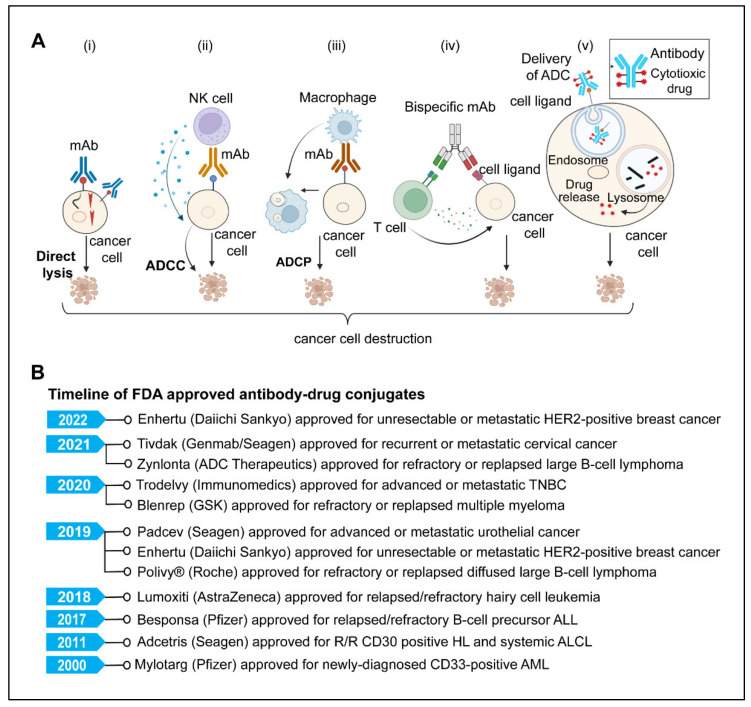Figure 4.
(A) Model showing various modes of action of therapeutic monoclonal antibodies used in cancer immunotherapy. (i) Direct killing of cancer cells; therapeutic mAbs bind to cancer cell surface receptors and facilitate killing directly by inhibiting downstream signaling pathways that are important for cellular viability and proliferation. (ii) Antibody-dependent cell-mediated cytotoxicity (ADCC), an immunological process (primarily mediated by NK cells) in which Fc receptor-bearing effector cells detect and kill antibody-coated target cells expressing tumor antigens on their surface. (iii) Antibody-dependent cellular phagocytosis (ADCP); opsonization of cancer cells by monoclonal antibodies triggers Fc receptors on macrophages, resulting in phagocytosis and subsequent killing of internalized target cells by phagosome acidification. (iv) A bispecific antibody acts as an adaptor molecule between the effector immune cell and the tumor cell, activation and cross-linking of effector cells (T cells) with tumor cells results in tumor cell lysis (v). The ADC (antibody-drug conjugate) binds to the tumor cell’s surface antigen receptor, forming an endocytosed ADC-antigen complex. The internalized complex is then processed by lysosomes, releasing the cytotoxic payload, interacting with its target, and killing the tumor cells. Created with BioRender.com (B) Timeline of U.S. FDA-approved antibody-drug conjugates for different cancers (Abbreviations; mAbs, monoclonal antibodies; ADCC, antibody-dependent cell-mediated cytotoxicity; ADCP, antibody-dependent cellular phagocytosis; ADC, antibody-drug conjugates).

